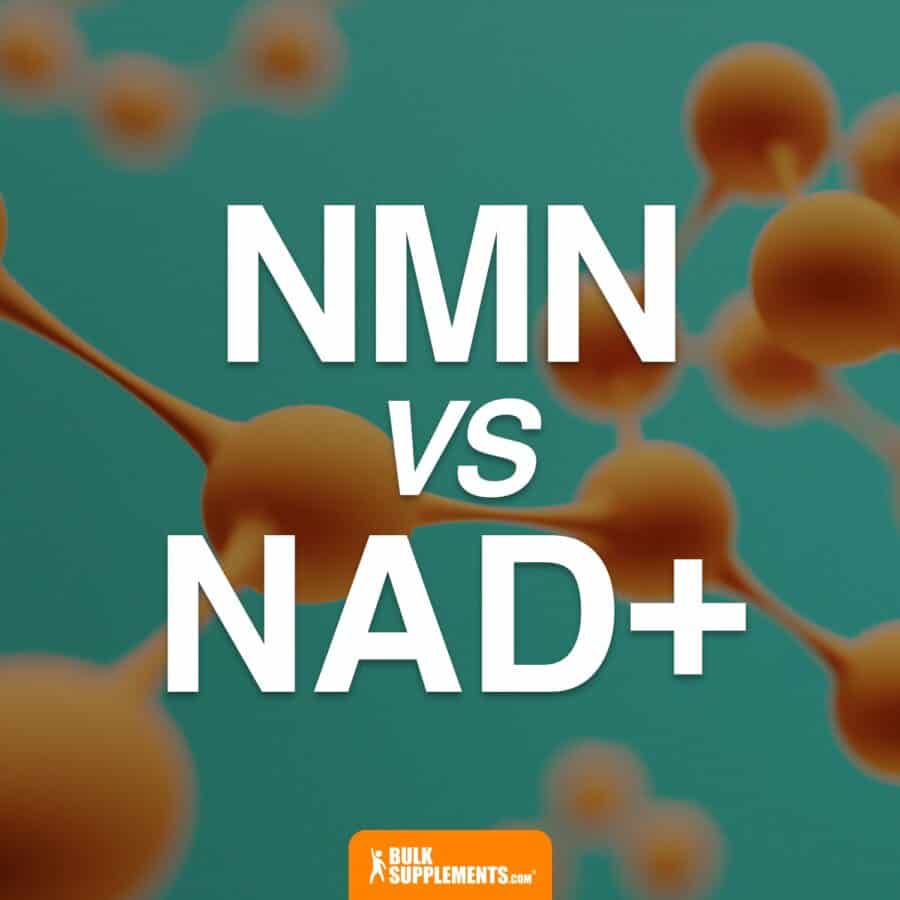Are you on the lookout for ways to enhance your cellular health? Then look no further; two of the most recognizable and well-studied supplements, NMN (nicotinamide mononucleotide) and NAD+ (nicotinamide adenine dinucleotide), can potentially help improve your overall health. Both supplements work to optimize pathways within cells that interact with a variety of critical bioactivities, such as metabolism and energy production. In this blog, we will take a deep dive into both NMN vs NAD+ to explore which supplement is able boost cellular health better!
What is NMN?
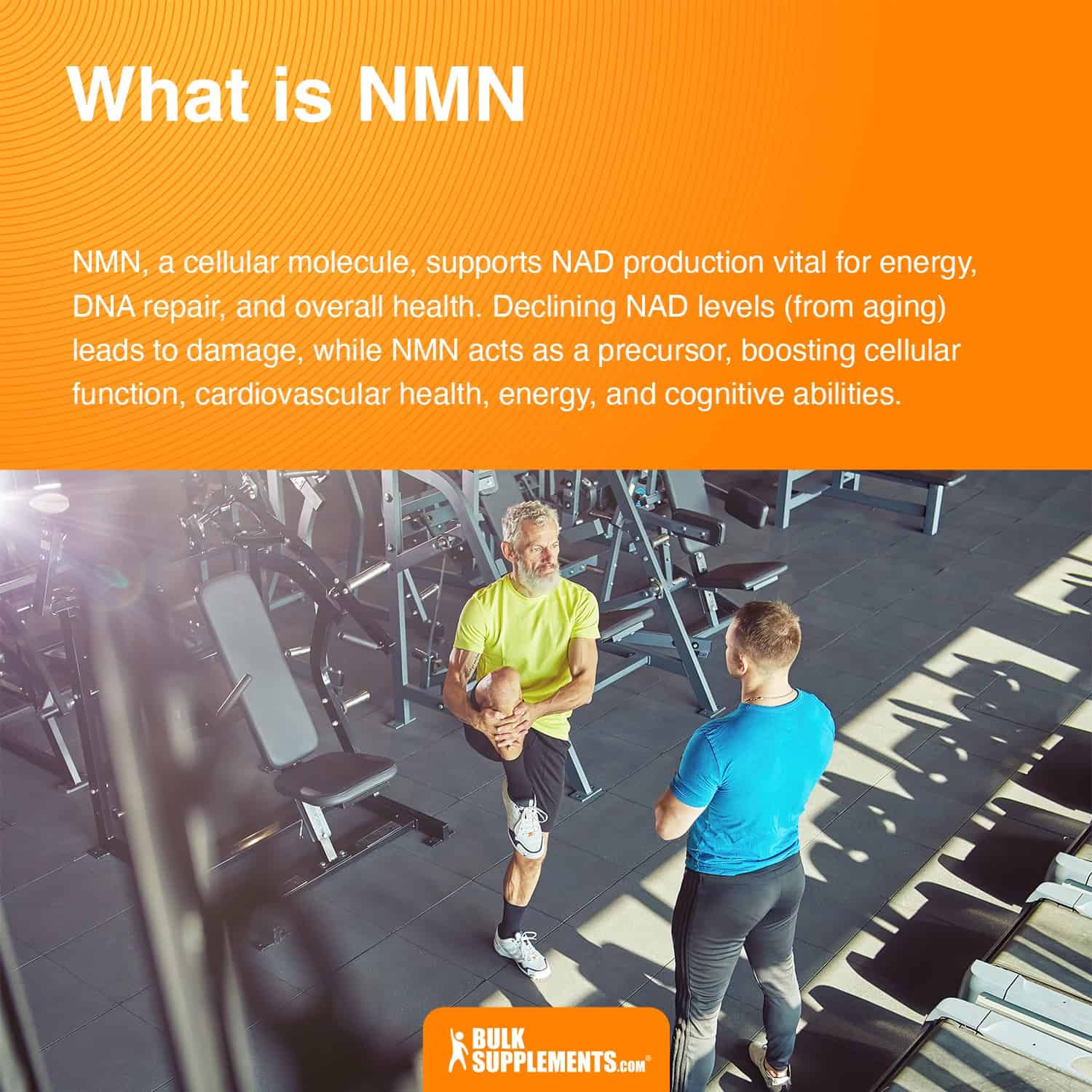
NMN is short for nicotinamide mononucleotide, which is a molecule found in every living cell of our bodies. It is a vital component in the production of nicotinamide adenine dinucleotide (NAD), a coenzyme that is responsible for cellular energy production and DNA repair. As we age, our NAD levels start to decline, leading to cellular damage and various age-related diseases. That’s where NMN comes in – it is a precursor to NAD, meaning that it helps to increase NAD levels in the body, leading to better cellular function and overall health.
So, what exactly does NMN do for the body? For starters, it has been found to improve cardiovascular health by increasing blood flow and reducing oxidative stress. It also boosts energy levels and metabolism, allowing you to perform daily tasks with greater ease and efficiency. NMN has even been shown to improve cognitive function and memory retention, helping to stave off age-related conditions like dementia and Alzheimer’s.
What is NAD+?
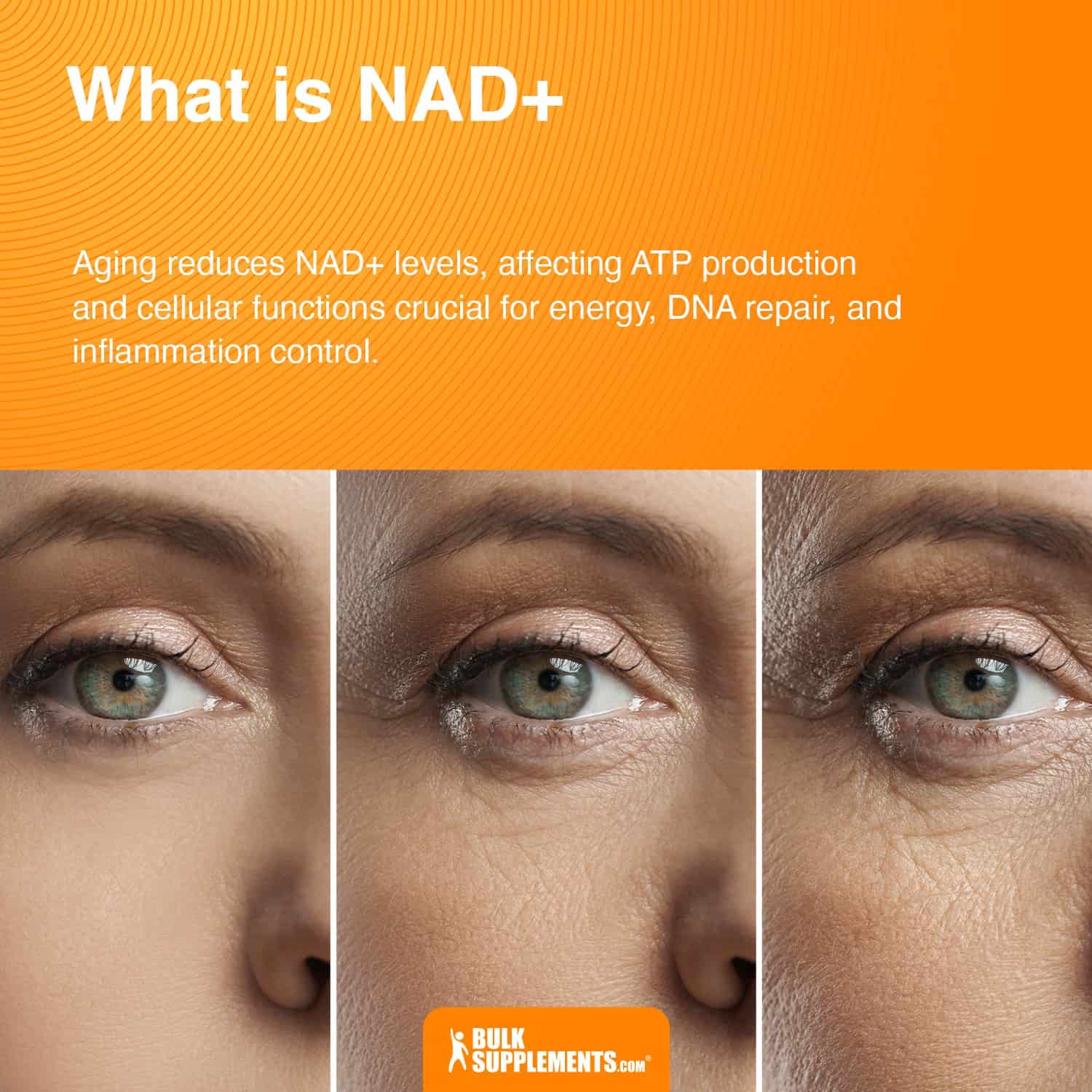
NAD+ is a molecule that naturally occurs in your body. It’s a coenzyme that helps enzymes in your body carry out essential chemical reactions. These reactions include breaking down food, producing energy, repairing DNA, and regulating inflammation, to name a few.
As we age, our NAD+ levels decrease, and this can negatively impact the critical functions our cells need to carry out. It’s believed that this decrease in NAD+ levels leads to cell damage, inflammation, and other signs of aging.
One of NAD+’s essential functions is to help your body create ATP, the molecule that provides energy to your cells. As you age and your NAD+ levels decline, it becomes increasingly challenging for your cells to produce the ATP that they need to perform their tasks.
How Important Is The Relationship Between NMN and NAD+?
NMN Boosts NAD+ Levels
As we age, the levels of NAD+ in our body decrease, leading to impaired cellular function, DNA damage, and accelerated aging. NMN is a naturally occurring molecule that converts into NAD+ once inside the body. Researchers have found that oral administration of NMN can increase NAD+ levels, restoring its cellular and molecular functions damaged by aging. They both work in synergy to enhance energy metabolism, improve cellular and mitochondrial function, and promote longevity.
NAD+ Promotes NMN Production
NAD+ is a crucial enzyme involved in energy production, DNA repair, and anti-aging. Besides, it plays a pivotal role in converting NMN into NAD+. A study found that levels of NAD+ are positively correlated with NMN levels, and increasing NAD+ precursors can trigger an increase in NMN production. By increasing NAD+ levels, we can trigger the synthesis of NMN, which activates sirtuins, a family of proteins that regulate numerous cellular functions, including aging.
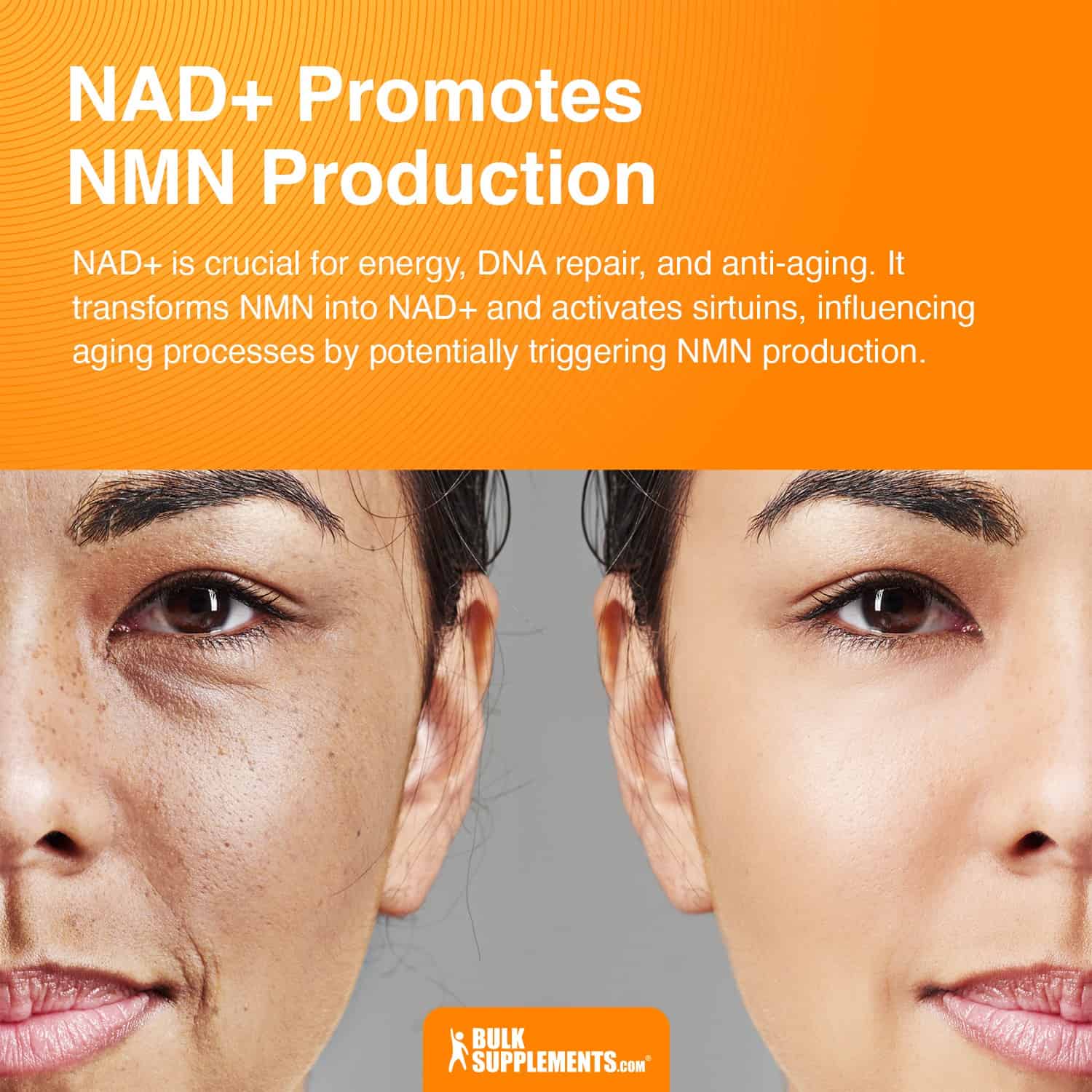
NMN and NAD+ Improve Cellular Health and Function
NMN and NAD+ are involved in numerous biological processes across the body, enhancing cellular and mitochondrial health. NAD+ promotes cellular repair and regeneration, reducing inflammation and oxidative stress. In contrast, NMN improves mitochondrial biogenesis, enhances energy metabolism, and reduces DNA damage, all contributing to longevity and well-being. Both molecules work in synergy, providing a powerful anti-aging effect that can protect against age-related diseases and promote optimal health.
NMN and NAD+ Prevent Age-related Diseases
Aging is a major risk factor for numerous chronic diseases such as cancer, diabetes, cardiovascular, and neurodegenerative disorders. Boosting NMN and NAD+ levels can prevent or reverse the onset and progression of these age-related diseases. A study found that oral administration of NMN improved insulin sensitivity, glucose metabolism, and energy production in aging mice. Furthermore, another study found that NAD+ supplementation improved cognitive function in Alzheimer’s disease patients. These results indicate the immense potential of these molecules in preventing and reversing age-related diseases.
NMN and NAD+ Promote Longevity
NMN and NAD+ work synergistically, providing a powerful anti-aging effect that can promote longevity. Increased levels can enhance mitochondrial biogenesis, energy metabolism, cellular repair, and genomic stability. These biological processes can prevent age-related decline in mitochondrial function, improve health span, and promote longevity. Therefore, by supplementing with NMN and NAD+, one can boost their overall health and well-being, leading to a longer, more fulfilling life.
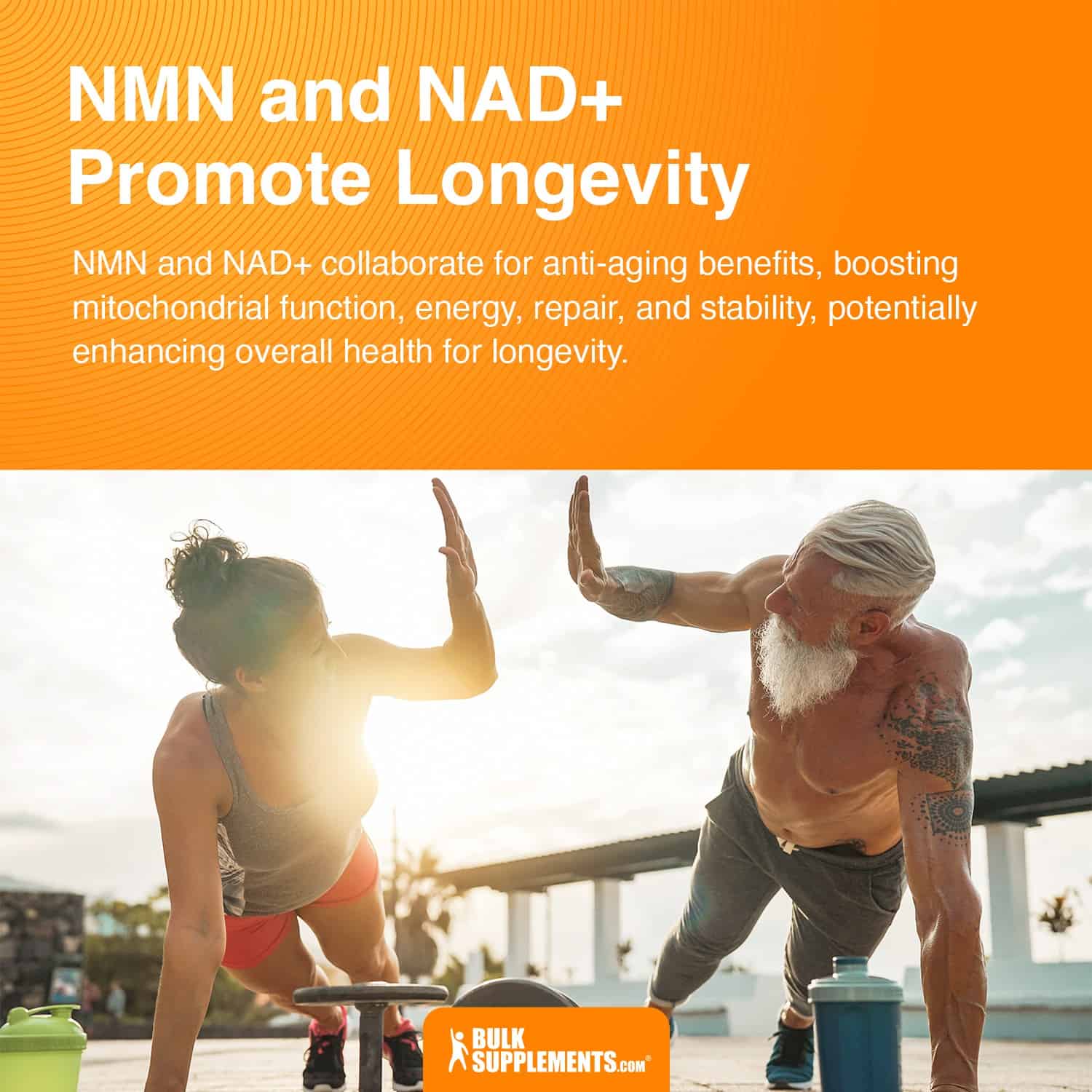
Dangers of NMN and NAD+
One of the most significant risks associated with them is overdosing. Both compounds boost the activity of sirtuins, a family of enzymes that play a crucial role in DNA repair and cellular maintenance. However, excessive activation of sirtuins can have the opposite effect, leading to serious problems. For example, research has linked excessive activation of sirtuins with a higher risk of cancer. Additionally, high doses of NMN or NAD+ can cause cell stress, which can increase inflammation and cellular damage.
NMN and NAD+ are not suitable for everyone, especially if you are taking certain medications or have pre-existing health conditions. For example, some studies suggest that taking NMN or NAD+ can interfere with blood sugar metabolism and may not be suitable for people with type 2 diabetes. Additionally, both supplements can interact with certain medications, including blood thinners and chemotherapy drugs. As with all supplements, it’s essential to talk to your doctor before adding them to your routine.
The Bottom Line
All in all, we can see that while both supplements have the potential to boost cellular health. NMN seems to be the more efficient option. Its ability to increase levels of NAD+ quickly and efficiently is something that sets it apart from other alternatives. Humans naturally produce NAD+ in our bodies. Supplementing with NMN can ensure a steady stream of increased NAD+ production and overall cellular health benefits for those looking to remain healthy or improve their current conditions. So if you’re health conscious and looking for the most reliable and effective means to do so, then consider investing in NMN and NAD+ supplements from trusted sources. With consistent use, you may begin seeing developments not only in how you look on the outside. Also how you feel on the inside – due to more efficient fueling on a cellular level.
While they both may seem like a promising solution for anti-aging and cellular repair, it’s essential to proceed with caution. As with any supplement, there are potential dangers that it’s important to be aware of. It’s crucial to understand the risks associated with these compounds and the potential contraindications. Always consult with a doctor before adding them to your routine. By doing your research and taking the time to understand the potential downsides, you can make an informed decision that prioritizes your health and well-being above all else.

